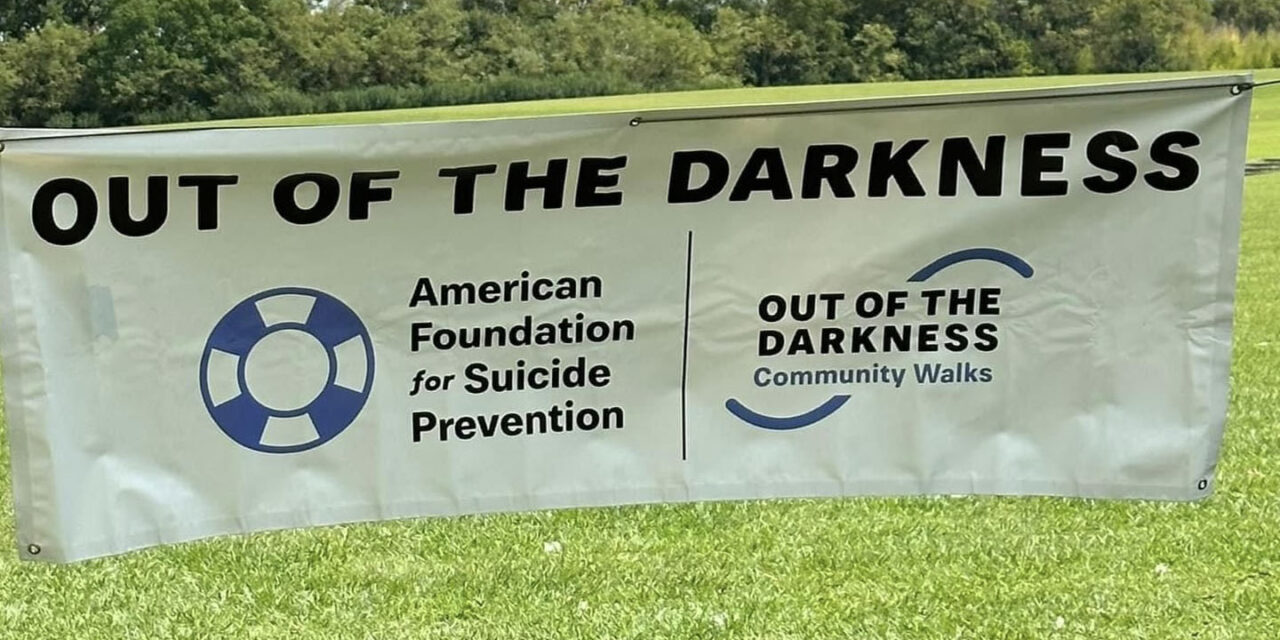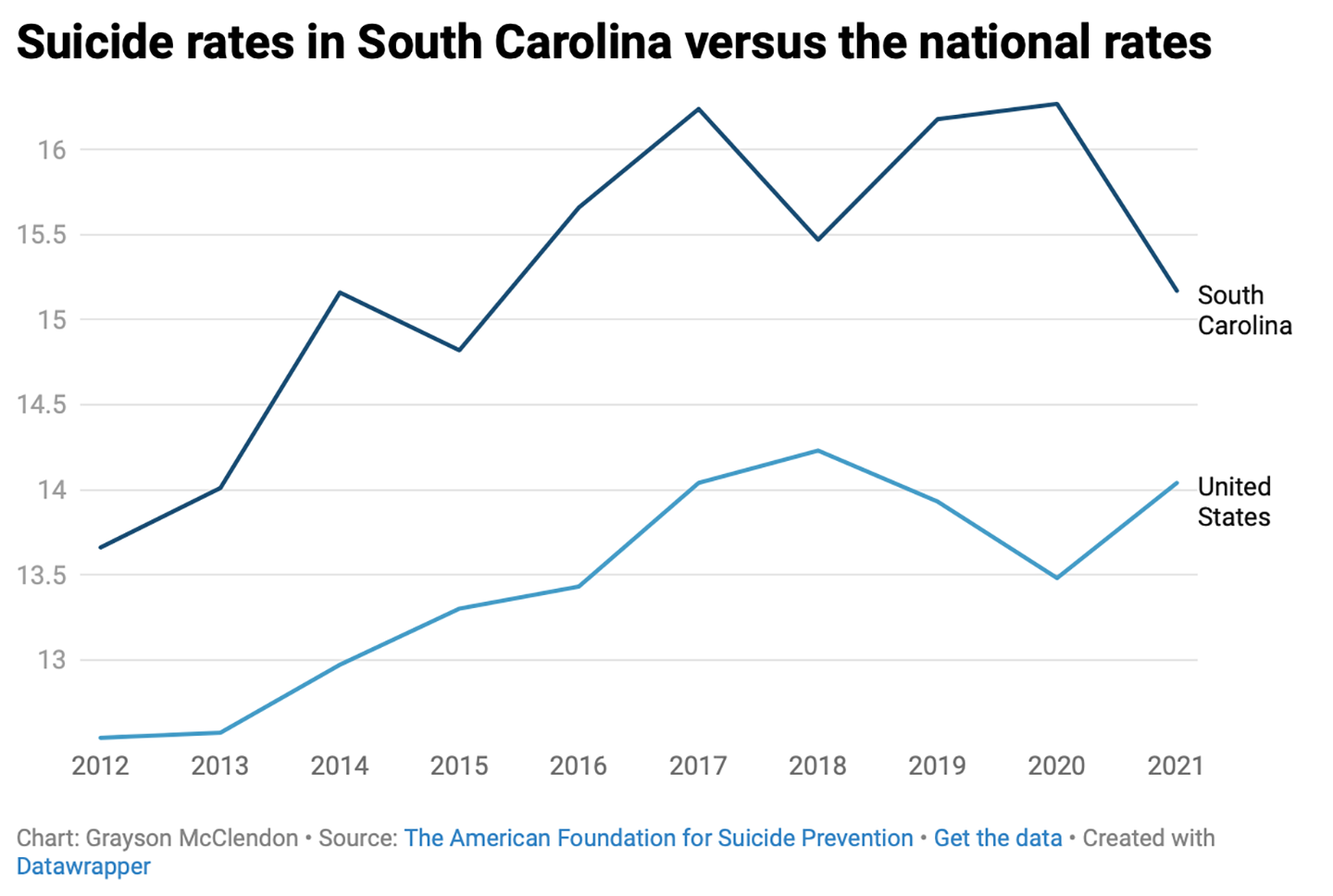Out of the Darkness is a fundraising walk that the AFSP hosts for people who are dealing with the loss of a loved one or are struggling themselves. (Photo courtesy of Hannah Carpenter)
South Carolina is the only state that provides free mental health screening through one of the country’s best-known suicide prevention groups.
The screening, for those 18 years or older, is provided by the American Foundation of Suicide Prevention.
The free screening is an anonymous online survey that takes about 30 minutes to fill out. Afterward, a clinician will log in and reach out to whoever needs help.
South Carolina’s chapter goes beyond what other chapters of the American Foundation of Suicide Prevention are doing in other ways, too.
Lexington Medical Center, for example, was the first hospital system in the United States that agreed to train its entire physician staff. The training helped staff identify patients’ warning signs for suicide.
The foundation was able to fund the training through the state Department of Mental Health.
“It’s getting less stigmatic to have a therapist,” said John Tjaarda, the South Carolina area director for the foundation. “But people go to the doctor when they are hurting so it’s cool that Lexington was able to step up, and that the chapter and DMH were able to help facilitate that.”
From 2012-2021, South Carolina’s suicide rates were consistently higher than the United States average.
That’s why the service, some say, is much needed.
Tjaarda has more than 100 volunteers and 13 board members across the state that help with suicide prevention efforts.
Maranda Beaver, from Simpsonville, is one of those. She also works at the South Carolina Department of Mental Health.
“I’ve been able to turn my own pain into a purpose,” said Beaver, a volunteer who’s been on the foundation’s board for seven years. “I’m a loss survivor. I lost my uncle to suicide in 2013, and so my favorite part is having that outlet to help others when I have felt the pain of suicide loss.”
The foundation also offers innovative educational programs such as Talk Saves Lives.
The program gives people specific prevention tips for suicide, the 11th most-common cause of death in the United States.
Participants go online for 45 minutes to learn about risk factors and warning signs that can keep themselves and loved ones safe.
“One of the things I love about this program is that you don’t have to be a physician, you don’t have to wear a white coat to help save a life,” Tjaarda said.
An estimated 703,000 people die by suicide worldwide each day, according to the foundation. There were an estimated 1.7 million suicide attempts in the United States in 2021, the latest year for which data is available.
The foundation said the purpose of this week is to “rally the public to create awareness of this leading cause of death, and inspire more and more people to learn how they can play a role in their communities in helping to save lives,” on its official Instagram.
One of the main ways the foundation fundraises are their walks all over the country.
This fall, it plans 10 fundraising walks across the state. In the spring they are hoping to host 9 walks at different universities, to spread the word about suicide prevention. The foundation will be visiting the University of South Carolina sometime in April, hoping to let people know they’re not alone.
Hannah Carpenter participated in the Out of the Darkness walk in Montgomery, Alabama.
“I think the more we talk about it and raise awareness, the more people don’t feel so alone in their thoughts,” Carpenter said. “When you’re in that situation, a lot of times you can think, ‘No one understands, no one’s been here.’ But with people kind of speaking up about it and holding these things, I feel like it pushes people to know they’re not alone and get the help they need.”
From 2012-2021, the suicide rates in South Carolina were consistently higher than the suicide rates in the U.S.
Lexington Medical was the first hospital center in the United States that agreed to train its entire physician staff in suicide prevention methods. (Photo by Grayson McClendon/Carolina News and Reporter)




